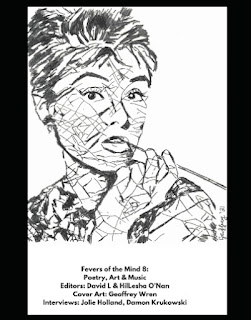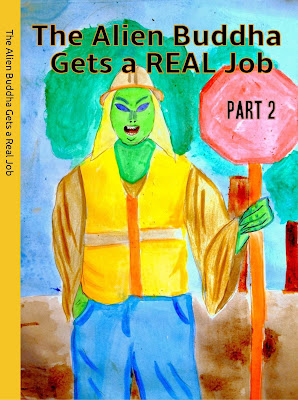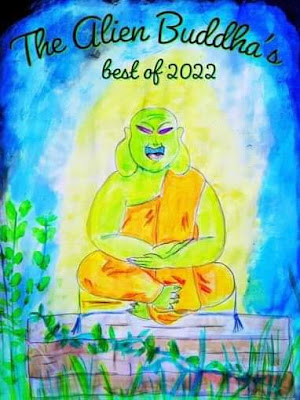Poet James Schwartz (author of the Lambda Literary Award nominated The Literary Party: Growing Up Gay and Amish in America, 2011) returns to Alien Buddha Press with a sparkling collection of poetry mining his Amish heritage into gold.
Through a raw autobiographical haiku sequence and love sonnets Schwartz confronts homophobic religious intolerance and loss, death and grief transforming to spring, love, freedom and renewal.
Amish Alchemy is a transformation of the Ages, illustrated with stunning images from the Public Domain Image Archive spanning antiquity and offering alternative mirrors of contemplation.
In this Amish themed journey through the Midwest and beyond lies beautiful temples of knowledge, fountains of wisdom and the alchemy of an exquisite artistic endeavor.
We introverts spend a significant portion of our lives being told to “put ourselves out there more” or to “stop hiding.” Many rarely realize that our love of seclusion is a “personality style characterized by [our] preference for the inner life of the mind over the outer world of other people” (Psychology Today). It’s not to say we never enjoy the outer world with other people, we’ve just learned to appreciate the solace we find in the inner world. Oftentimes, that inner space is a place of meditative reflection, a location of pivotal escape, or a vantage point for us to view the human condition macrocosmically. Some would argue that our greatest journey as introverts requires us to free ourselves from the shame imposed on us throughout our lives. We don’t need to show up to a party to make ourselves heard. We don’t need to stand in the middle of a metropolis to make a statement. We don’t need to host soirees to entertain. We speak through our art and in these introverted worlds we weave, our whispers speak louder than shouts.
It is rare when a poet will emerge that becomes a wonderful musician, artist, activist
and celebrated with a Nobel Prize in the end for writing.
He is a natural with words, freestyle to deeply thoughtful. Within metaphors that’ll
make you think inevitably if you study each line it’ll make sense in the end.
Bob Dylan came around when folk was almost bubblegum. It took him, Joan Baez,
Odetta, Dave Van Ronk, Phil Ochs to continue the folk that endured the same feeling
of hardships of a Woody Guthrie, Pete Seeger, Leadbelly, the many blues and jazz musicians before. It was less about what Elvis, Buddy Holly, and what Chuck Berry was putting out (which definitely is a great style on itself) Dylan was about shifting, changing with the times, understanding what was to come and being 1 step ahead. He sung and wrote like an artist painting a picture. He is a storyteller. He wasn’t afraid to bring sarcasm, his truth to a story and laying it out for everyone the bones, the bruises, and the sweat . He had many muses to help him write to his perfections in writing. Whether it be personal relationships with Suze Rotolo, Joan Baez, his wife Sara, Carolyn Dennis, Edie Sedgwick, Nico, but also with musical counterparts such as Woody Guthrie, once again Joan Baez, Joni Mitchell, Neil Young. Influences in writing of Arthur Rimbaud, Dylan Thomas, and just exploring cities from Minneapolis to New York to London and exploring this world like Kerouac and Ginsberg & other beats. He had a natural flow of thought, passion & yes, bitterness but he wanted to protect the dignity of true art, and not lead it to what most people hear today on the radio, youtube, and more. He was always exploring his faith (another muse)? He made friendships and enemies and friendships with enemies. Everyone in music from the 60’s til now knew Dylan. Whether they liked his personality or not, they definitely had to have some form of admiration of his art. Bruce Springsteen, Tom Petty, Mark Knopfler, Leonard Cohen, Johnny Cash, The Byrds, The Beatles, Joni Mitchell (a frenemy at times), The Band, even Judas Priest.
Kindle & Paperback Links:
U.S. : https://tinyurl.com/2p938cy8
Canada: https://tinyurl.com/2p9cnc2c
India: https://tinyurl.com/5ebda55a
U.K. : https://tinyurl.com/yc7sk3n8
France: https://tinyurl.com/2kahcd9v
Germany (Deutschland): https://tinyurl.com/fj24ed4s
Japan: https://tinyurl.com/33unzy8y
Australia: https://tinyurl.com/3c6kdhxe
Brazil: https://tinyurl.com/2p98w62w
Italy: https://tinyurl.com/mryn59us
Netherlands: https://tinyurl.com/yrvzekh8
Mexico: https://tinyurl.com/6pf5jnc6
Poland: https://tinyurl.com/2p8h5b5p
Sweden: https://tinyurl.com/yckjd7jn
Spain: https://tinyurl.com/4pe777f2
United Arab Emirates: https://tinyurl.com/ne6m3j73
- Given the Black Lives Matter protests against racial discrimination and the rise of domestic violence and other forms of insecurity for women and LGBTQ+ folx during the pandemic, the charitable focus has changed somewhat for this second round of chapbooks
- Make a donation or purchase that supports women’s shelters, domestic violence shelters, anti-domestic-violence initiatives, organizations supporting LGBTQ+ folx, or organizations supporting racial equality (including American community bail funds). Also eligible are receipts from small presses / indie bookstores for books written by LGBTQ+ authors, authors who belong to marginalized sexes/genders (including women/womxn), and Black authors. There is no minimum contribution amount
- Email your receipt and your mailing address to either 845 Press (thetemzreview@gmail.com) or Collusion Books (longconmag@gmail.com) to immediately receive both a PDF copy of June 2020: A Pandemic Anthology AND the access password to view . A complimentary hard copy of June 2020 will be mailed to you when the hard copies have been printed
- Receipts must be dated June 1, 2020 or later
Financial hardship:
We know that this is a very difficult time, with unprecedentedly high unemployment and massive financial pressures for individuals and households. If you are unable to make a contribution, just email either press to let us know (include your mailing address), and we will make one on your behalf! You will immediately receive both the PDF copy of June 2020: A Pandemic Anthology AND the access password to view . A complimentary hard copy of June 2020 will be mailed to you when the hard copies have been printed.
Edited by Ryan Schuessler and Kevin Whiteneir, Jr.
The middle of America—the Midwest, Appalachia, the Rust Belt, the Great Plains, the Upper South—is a queer place, and it always has been. The queer people of its cities, farms, and suburbs do not exist only to serve as “blue dots” within “red states.” Every story about the kid from Iowa who steps off the bus in Manhattan, ready to “finally” live, is a story about the kid who was already living in Iowa. Sweeter Voices Still is about that kid and has been written by people like them. This collection features queer voices you might recognize—established and successful writers and thinkers—and others you might not—people who don’t think of themselves as writers at all. In this book, transgender women and men are women and men, “they” and “them” can be singular pronouns, Black lives matter, sex work is work, and you don’t have to go to a gay bar to be gay—and it’s okay if you do, too. You’ll find sex, love, and heartbreak and all the beings we meet along the way: trees, deer, cicadas, sturgeon. Most of all, you'll find real people.
Featuring a foreword by Northwestern University professor Doug Kiel.
Contributors: Kemi Alabi, Samuel Autman, Neema Avashia, Lars Avis, Joss Barton, Yasmin Bashir, Jeffery Beam, Zach Benak, Taylor Brorby, Jasmine Burnett, River Coello, Edward M. Cohen, Brian Czyzyk, Harmony Cox, Gene Dawson, Patrick Del Percio, Dominick Duda, Joanna Eleftheriou, Aaron Foley, Christopher Gonzalez, Stacy Grover, Elizabeth Harper, Jackie Hedeman, Jessica Jacobs, C.J. Janovy, Jessie Keary, Owen Keehnen, River Ian Kerstetter, Doug Kiel, Jocelyn Krueger, Nichole Lohrman-Novak, Raymond Luczak, Ka “Oskar” Ly, K. Ann MacNeil, Mary Maxfield, Gabe Montesanti, Jennifer Morales, Kalene Nisly, Andriy Partykevich, Robert L. Patrick, Kay Patterson, Angela Pupino, Kai Minosh Pyle, Samer Hassan, Michael Schreiber, Sharon Seithel, L.S. Quinn, Jose Quinones, Sarah Sala, James Schwartz, Gregg Shapiro, Joel Showalter, Carmen Smith, Robyn Steely, Sylvia Sukop, Alyson Thompson, Janine Tiffe, Steffan Triplett, April Vazquez, Evan Williams
Pandemic Chapbooks Initative to support charitable giving.
POETRY in the TIME of CORONAVIRUS is an anthology of original submissions from the Poets of the World. Proceeds will benefit Doctors Without Borders and Partners In Health - two outstanding organizations supporting the fight against COVID-19 and countless other global health issues.
Please follow @p_i_t_t_o_c on Instagram to meet many of the poets who generously committed themselves to this charitable effort with their profound creative voices. We dedicate this project to all of the healthcare professionals tasked with treating the victims of Coronavirus. As well, our community of poets extends its compassion and love to all who have been affected by this terrible pandemic. Thank you for supporting our small effort to make a positive difference during this tenuous time. Edited by G.A. Cuddy with valued assistance from Liz Kobak. Cover art by Charlotte Knauth. Contributors: Melanie Maxey, April Leavenworth, Alison Hurwitz, Erica Klarreich, Declan Boyle, Mark Gibbons, Noelle Butkevic, Allan Safarik, Robert Lee, Mark Creavan, Joey Kent, Austin Benson, Patty Lovell, John Paul, Jean Scott, Carmen Micsa, Elizabeth Rogan, Sheri Knauth, Charlotte Knauth, Linda M. Crate, Graeme Beale, Sukhy Parhar, James Schwartz, Sandra Fox Murphy, Taylor Bruce, Paul Cowan, Jerry Gonzalez, Shaun Gant, Luanne Castle, Robert Lonsdale, A.J. Chilson, Kimberly Stowe Green, Andrew Dawson, Matt Nagin, Lewis Trotter, Elizabeth Foster, Priyanka Sacheti, Julie Hale, Chloe Graves, Kayla Graves, Liz Kobak, Susan J. Farese, Devon Weis, Tanya Palacios, Buddila, Siddhant Pardesi, Toni Halseth, Sandra Frye, Teri Gruenwald, Conrad NN, Frankie Acosta, Kendra Stanton Lee, Tony Grand, Peggy Gerber, Judy Lewis, Benedikt Pavolvsky, Alan Weltzien, Margaret Seven Wellman, Shardae Rudel, Moeze Lalji, James Douglas, Keerthana Dhakshinamoorthy, Becky Simmons, Yvonne Glasgow, Josh Massey, Madison Zehmer, Tianna G. Hansen, Maureen Barron, Sharon Simon, Chirayu Writer, Sameer Agrawal, Aldo Quagliotti, Jen Chicheseter, Jamie Murray, (Ren, b.), Ava Motes, Melissa Felson, Dr. Pallavi Narayan, Anonymous Girl (Shreveport, LA), Ajao Abdulqowiyy, Molly Shem Lynch, Bolawa Sunday Ojo, Gerald Wickham, Valerie Fern, Stacy Potter, Melissa Gill, LQ McDonald III, Laura Ogden, Eleanora Hristova, Serene Bavis, Anjuna, Dr. Dan Milner, Kshitij Thakkar, Dwiki Nugroho Mukti, Sito Fossy Biosa, Candra Prasetiyo Wibowo, Alex R. Hein, Airea Johnson, Taya Franco, Debarshi Mitra, Jeanette C. Vigliotti, Shineth Anne, Pamela Sumners, Manshur Zikri, Jennifer Lemming, Madison Gordon, Stephen Watt, John Evan Patrick, John Morgan, Lisa Nelson, Nicolas Correa, Marie Johnson-Ladson, Ahren Lehnert, Matt Steele, Peter Clive, Emily Simon, Gerry Whyte, Katie Elizabeth, Champagne Writers (Candace A. Williams, DiAna Smith-Brown, and Peggy Gerber), Kate Garrett, Lynn Ungar, T.L. White, B. (@sexinthe6ixblog on Instagram), Christopher Kent, Marc Beaudin, Shelby Clark, Christopher Kent, Abigail Tabor, Simon Medhurst, Theresa Bastian, Jayda Louise, Andi Talbot, Joelle P., Patrick Hart, Jen Hughes, Ross Wilcox, Chloe Hanks, Neel Trivedi, S.A. Mobley, Sara C. Marron, Kari Rittoo, Gayle Smith, H.C. Anhalt, and Isabel Morgan.
A worthy homage. - SAN FRANCISCO REVIEW OF BOOKS
A truly diverse, impassioned, and heartening collection of voices united in horror, frustration, fury, and purpose. I have been reading a few pages each night at bedtime, and I marvel at how comforting it has been for me to see my own revulsion and anger at our current situation mirrored by so many voices from so many points of view. Each time I set it down, I am smarter, more focused, and more determined to right the wrongs that are taking place today. A truly wonderful book.
- READER REVIEW - POWELLS
PAGE-A-DAY POETRY ANTHOLOGY (WRITING KNIGHTS PRESS, 2014) AMAZON
“On the road and on the prowl, James Schwartz delivers an explosive manifesto of personal liberation and revolution, from the Amish communities of Michigan to Putin’s bloody regime in Russia.” – CHER GUEVARA, poet / freelance journalist
(inGroup Press, 2011) AMAZON KINDLE
"The Literary Party: Growing up Gay and Amish in America" helps us to see into one of these uniquely American groups and the ways in which it builds tight walls of protection around their world-view by destroying the internally unacceptable. James Schwartz shares with us a view point that is at the same time unique, fascinating, real, and also horrifying, as a young gay man growing up in a traditional Amish farm family. His voice, and his story, which we are allowed to glimpse through his poetry, helps us to understand what it may be like for such a cloistered view of the world from the inside out.
Rimbaud as a youth ran away from home to write, putting his poems on bits of paper. Poetry, for him, was the way to salvation. Rimbaud was a hooligan in his time, a Bad Boy when young poets were celebrities.
Well, poets are no longer celebrities in that sense, but youth poet Jeremiah Walton, manager of the press, Nostrovia! Poetry is attempting through edited anthologies, a guest blog, and other means to grab the attentions of young people and to fix them once again on poetry. His anthology, Milk and Honey Siren is a part of that effort. "Poetry," Walton writes, "has been labeled by young people 'whiny and annoying.'" He wishes to bring to his peers works that will elicit another point of view toward the literary arts and has largely succeeded in this collection.
There is no single style promoted in Milk and Honey Siren. The only criteria for inclusion in the anthology were quality and ability to address young people. Both active poets and emerging poets were included and they are not necessarily all young themselves.
This is not a transgressive collection. There’s some anger, but largely not. The concerns of the writers in this anthology are relevant even to those working hard for good grades in school. In the very entertaining "Doug Complex" by Lance Manion, one of a few short prose pieces in the anthology, the 17-year-old Doug worries that he will be grounded for obliterating the stars in the sky (one for every girl who has rejected him).
A set of "Invisible Monkeys" poems by Kyle Hemmings in particular caught my eye. Hemmings has written other invisible monkeys poems (prose poems) from a fantastical perspective. They evoke James Tate, but relate experiences of meeting a girl, pizza, pinball. There's even a critique of the literary establishment (called "Literary establishment") written in rhyme, but using it effectively, by Ben Saphiro, who has written several Kindle books.
A short poem I found particularly compelling was Nathan Hondros' "Migraine," with its imagery and fine last line:
it was a revelation
that knife I carried
behind the eyes –
if she had seen me clearly
she would have known how I carry death
in a hot iron
between the temples.
later, she was knee deep
in the Aegean. a sort of siren,
calling me in, her hands above her head, and
naked from the waist up.
instead I fell face first.
I lay in bed all day imagining this for her.
Also, Mike Murphey's "Blue November" sonnet, reproduced here in its entirety:
Where has my Nora gone? I do not see her
in our white painted room where her crucifixes
hang above the bed. I do not see her
in the garden where the blue rhododendrons
clamor for light. Where is my only girl
who makes the moonlight my midnight friend?
In this pitch less room, I must wait
with the antique barometer, the dried out roses
and the porcelain angel for the common crow
to break the silence of my nightly vigil,
claim my fitful sleep, claim my broken schemes.
Blue was her dream, blue, always her color
when she took handfuls of barbiturates,
when November rain returned with its idle words.
There are many references to pop culture in here, as would be expected in a collection designed to appeal to youth: Disneyland, comics, flat screen TVs. These work well in the collection. But there are also references to the Arab Spring, genocide, The Great Gatsby, Marc Chagall.
The reader can find poems to like here, from the aesthetic sparseness of Lauren Frament's "The Boy With Pomegranate Flesh Between His Teeth" or John Flynn's "Seismic" to the visually evocative “Release of the Cabbage Looper Moth” by Kristen Berger, to Adam Steiner's densely packed "The Waters Come Alive."
- GOODREADS REVIEW




























.jpg)

















































